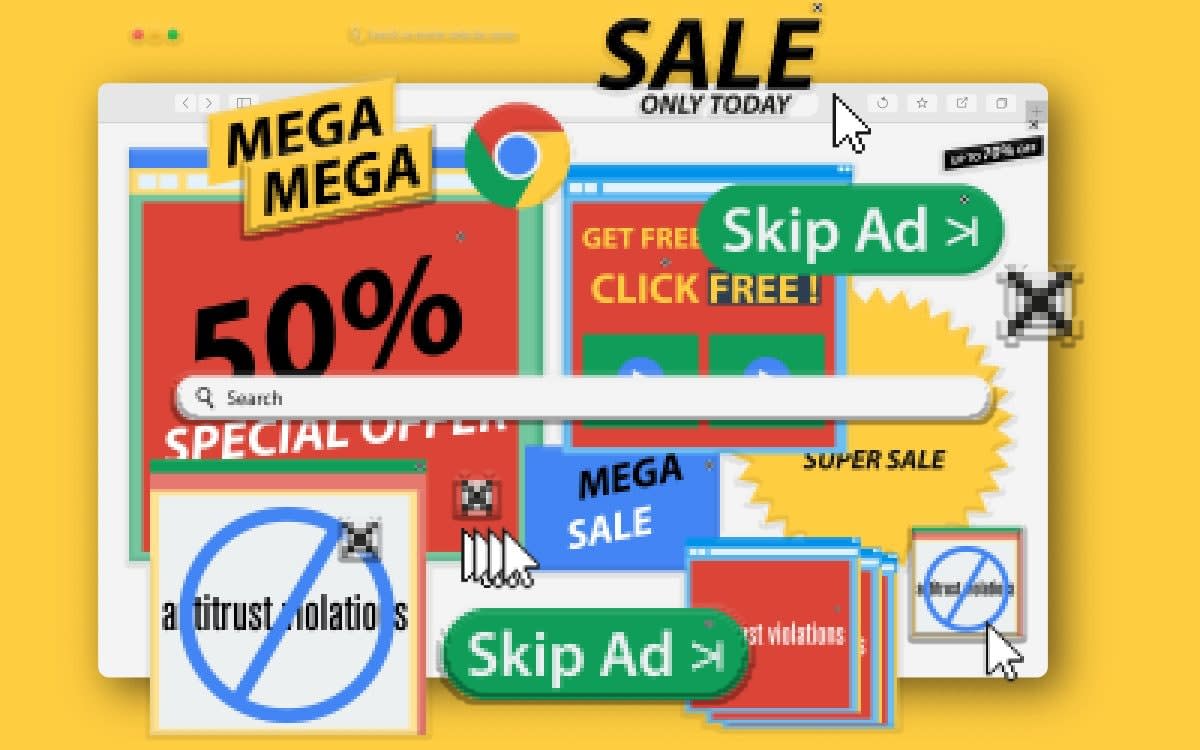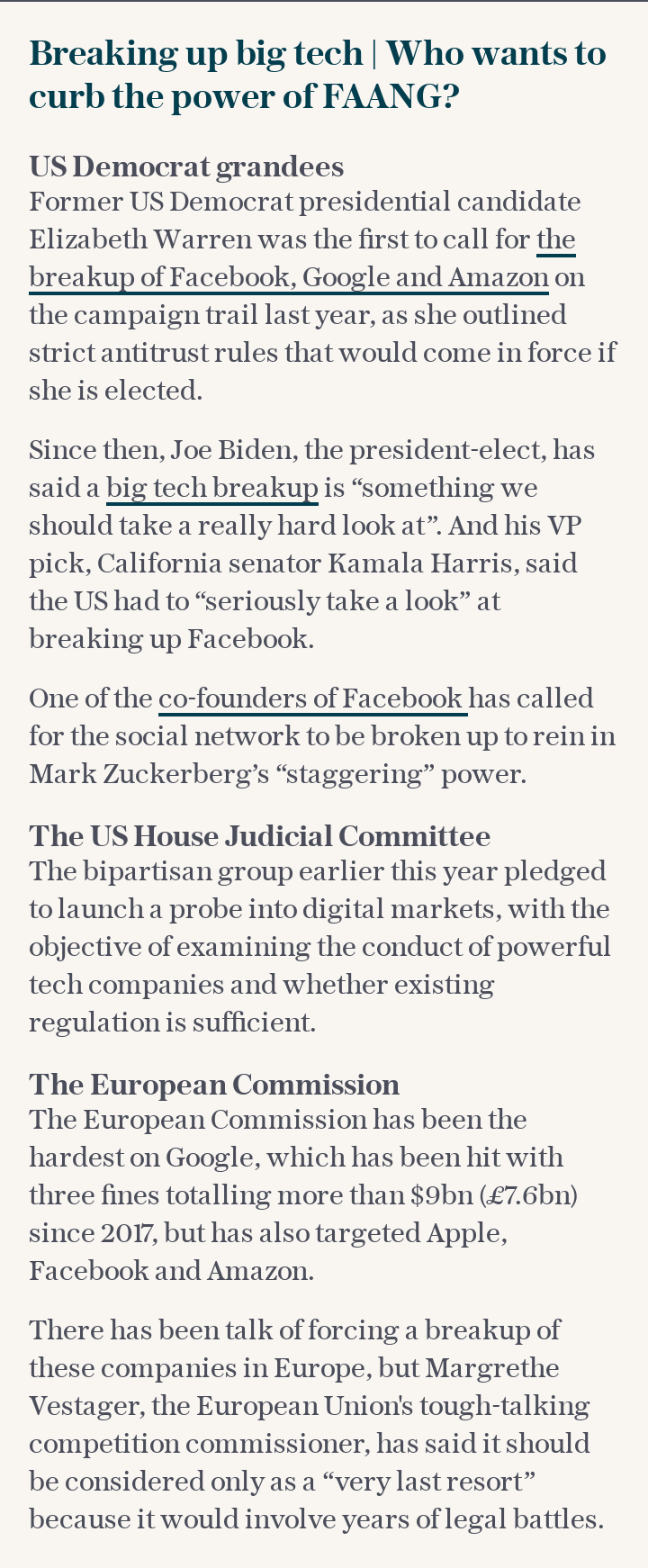Why Google might be forced to sell off its Chrome browser

US officials investigating Google for alleged antitrust violations are deciding whether the company should be forced to sell Chrome, the world's most popular browser, according to reports.
Regulators have been asking the advice of Google’s competitors, publishers and technology experts to work out exactly what remedy to take if they find it has been operating a monopoly as part of an ongoing investigation that has lasted more than a year.
Several of those interviewed by the Department of Justice have claimed to be asked whether snapping off Google's smartphone operating system Android, its search engine, advertising technology or YouTube would be the right way to go. Now, some are saying Chrome is the new topic du jour.
The culprit in most competition investigations into Google has been its search engine, the money-spinning centre of the company that keeps the rest of the Google funfair from life enhancing companies to driverless cars alive.
But in reality, Chrome is the gateway drug to the search engine. Without it, its grip on the $162bn (£125bn) digital advertising market might start to slip.
It is hard to picture an internet without Chrome and its iconic logo but in 2008 it was a different story. When a tab first appeared under its search engine asking people to download a mysterious, super fast internet browser many people were confused.
The top secret project, its namesake mimicking a crucial design element of sleek and fast classic cars, was considered a high risk venture. At the time most people were using Microsoft’s Internet Explorer, with Firefox a strong second and an additional few stragglers accessing the world wide web through Apple’s Safari or alternatives such as Opera.

But Chrome was created in an attempt to survive. Google had long feared Microsoft would cut its search engine off in Internet Explorer, and had heard that it was creating its own, which it would surely promote when the time came. It was a smart move. Microsoft went on to build its own search engine, although Bing, unlike its rival, failed to enter the online lexicon as a verb.
Twelve years later the browser market looks vastly different. Chrome takes almost 70pc of the market share, Firefox and Edge about 7pc each and Internet Explorer 5pc, according to NetMarketShare data.
Allegations that Chrome helps Google crush competition come from all sides. Senator Richard Blumenthal pointed out in a recent antitrust hearing that Chrome allows advertisers to target a newspaper’s readers on a different platform but at a lower cost, effectively “driving them out of business”, a revenue cut felt by many digital businesses in different sectors.
Others say that Google’s sudden shift to removing third party cookies and other tracking from its Chrome browser - which it says in the interests of users’ privacy - is another way of killing advertising competition. Sundar Pichai admitted during the same hearing that the company “had other ways of collecting” users’ data which it could use to sell adverts, while blocking off digital marketing companies and publishers from doing the same.
Lawyers representing Chrome users in a class action lawsuit filed in New York in July agree. They argue that Google has not been focused on users’ privacy and allege that from 2016 until now, Google “intentionally and unlawfully causes Chrome to record and send users’ personal information to Google regardless of whether a user elects to Sync or even has a Google account”. Google has not responded to a request for comment.
Chrome's dominance comes in part because its other services like YouTube, Gmail and Google Docs work best on the browser. Indeed, why shouldn’t a company be able to make its own products work well together? But critics argue that by its services so they work most effectively on Chrome, consumers are left with no real alternative but to use the Google browser to access them.

“There is really only one Big Tech monopoly that I actively worry about,” wrote Salesforce product management executive Blair Reeves in a blog post last year. “Google Chrome”.
Reeves points to ad blocking, which stops publishers from retrieving any kind of revenue from free content yet allows Google to collect data on that user, and the business motive behind Chrome: to drive advertising, as the main causes for concern.
Some legal experts say an antitrust case against Google will be difficult for the US government to win. Chrome and its search engine is free and it is easy to find alternatives.
Pressure is also growing on the firm across in Europe. On Wednesday, France and the Netherlands joined a call for the EU to take pre-emptive action against tech giants ahead of regulation on their power.
Chrome’s long-term dominance is up for question. Microsoft this year launched its Microsoft Edge browser with Chromium, the browser "engine", or underlying technical scaffolding, that also supports Chrome. Fellow web browsers Opera, Brave and Vivaldi are also built on Chromium.
This state of affairs might sound as if Google has control over not only its own, but several other web browsers, but Microsoft moving Edge onto Chromium is a good way to make sure Google has less control over the project, giving its rival more input into how it works.
Using Chromium is widely expected to improve Microsoft's browser when it comes to adding features, mimicking the way Chrome acts like an operating system in its own right. This could mean more competition between the two focused on features, rather than performance.
Google might argue that there is no need to force it to sell off Chrome; a competitive market will take care of that. It could point to the last big technology antitrust investigation in the US, the early 2000s crusade against Microsoft, which stemmed from fears that its Internet Explorer browser would become too dominant.
Today, Internet Explorer lives on mainly as a memory, mainly because a young upstart called Google challenged it, not thanks to the US government.

 Yahoo News
Yahoo News 
